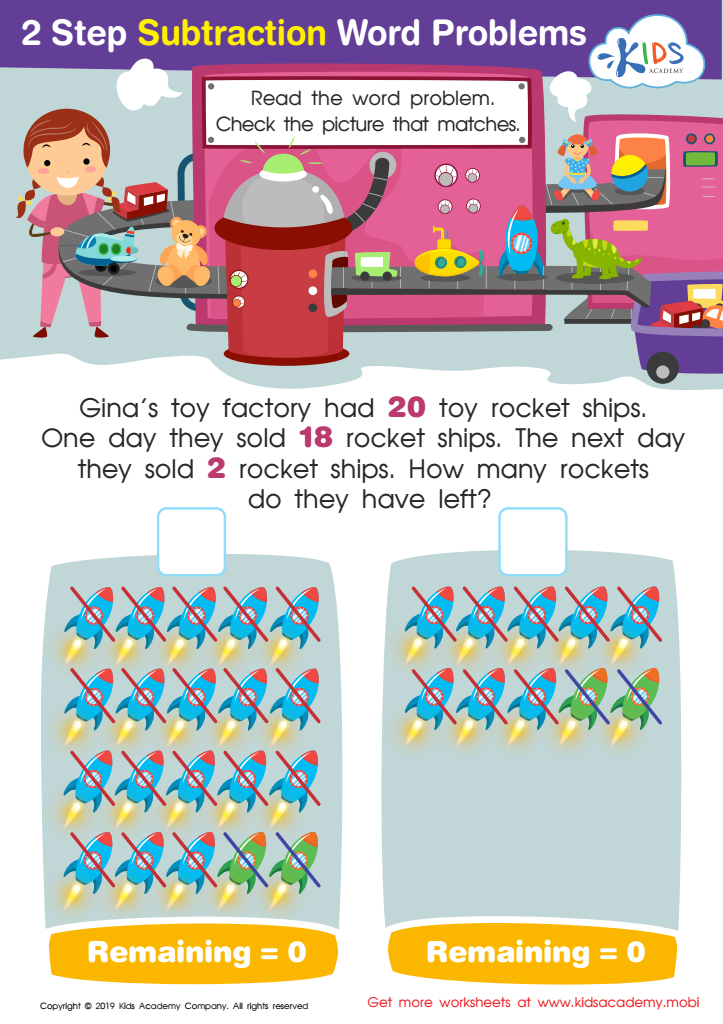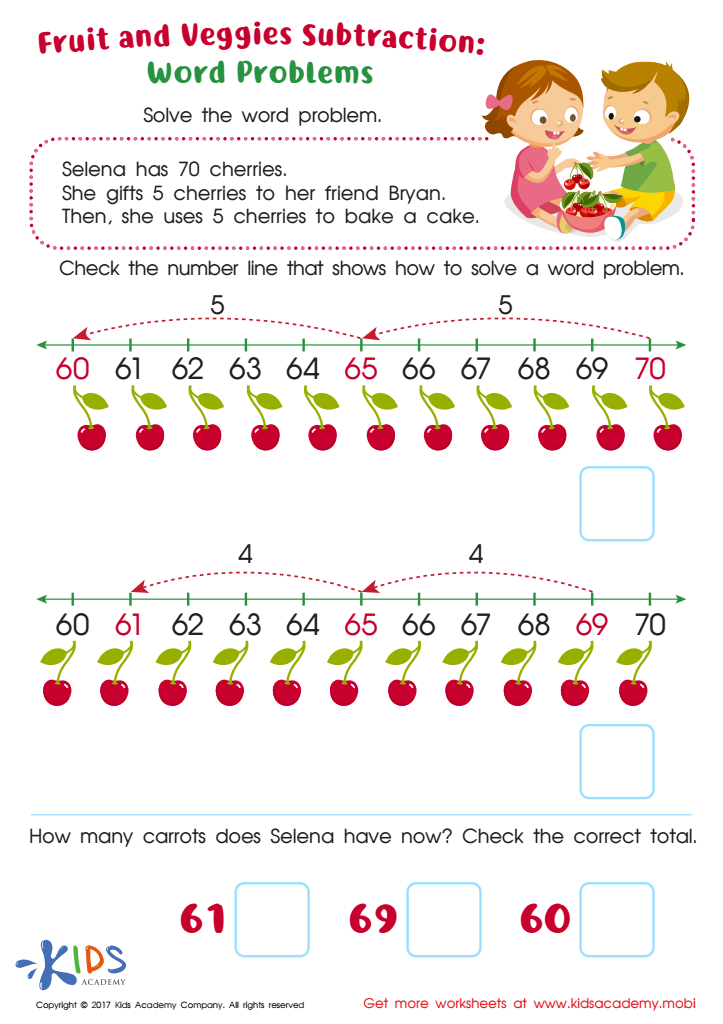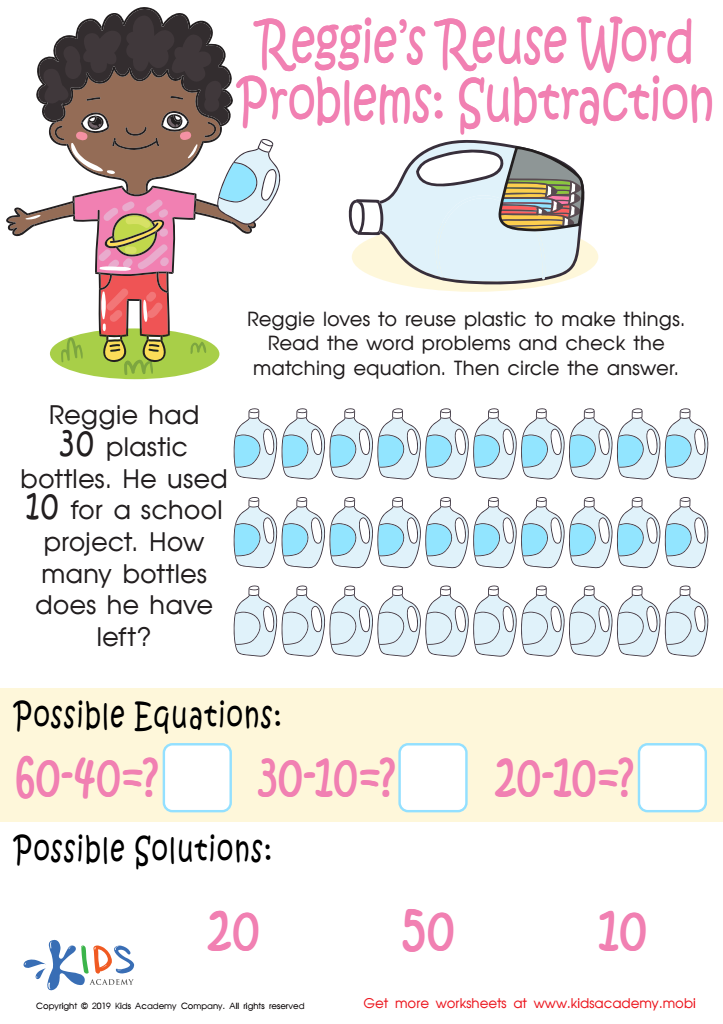Subtraction practice Normal Word Problems Worksheets for Ages 3-7
3 filtered results
-
From - To
Welcome to our collection of Subtraction Practice Normal Word Problems Worksheets designed for children aged 3-7! These engaging worksheets provide young learners with a fun and interactive way to master subtraction through real-life scenarios. Each worksheet features simple, age-appropriate word problems that encourage critical thinking and reinforce foundational math skills. Perfect for home or classroom use, our resources support early development in mathematics while building confidence. With colorful illustrations and relatable contexts, children will enjoy solving subtraction problems along with their favorite characters. Start enhancing your child's arithmetic abilities today with our engaging subtraction worksheets!


Step Subtraction Word Problems Worksheet


Subtraction Word Problems Free Printable


Reggie's Reuse Word Problems: Subtraction Worksheet
Subtraction practice using normal word problems is essential for children ages 3-7 because it lays the foundation for their mathematical understanding and critical thinking skills. At this stage, children are naturally curious and eager to learn, and engaging with subtraction through relatable scenarios helps them grasp the concept in a meaningful way. For example, using everyday situations, like having five apples and giving away two, makes subtraction relatable and easier for young minds to process.
Furthermore, word problems enhance cognitive development by encouraging children to visualize the problem and think logically. They learn to interpret the language of math, develop problem-solving strategies, and gain confidence in their ability to tackle challenges. This practice also fosters essential communication skills, as children articulate their understanding and reasoning.
For parents and teachers, promoting subtraction word problems means cultivating a positive mathematical mindset and reducing math anxiety. When children see math in the context of real-life situations, they are more likely to enjoy learning and retain their skills. By prioritizing this practice, parents and teachers can help children build a strong foundation for future mathematical concepts, ensuring they are well-prepared for the complexities of math in higher grades.
 Assign to My Students
Assign to My Students




















